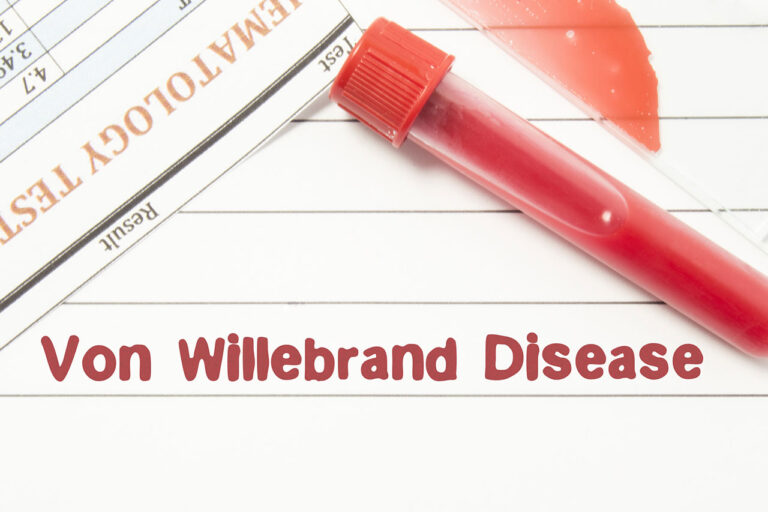
Nếu bạn đã được chẩn đoán mắc bệnh khí phế thũng (một bệnh về phổi) hoặc đang gặp các triệu chứng tương tự như bệnh khí phế thũng do thiếu hụt alpha-1 antitrypsin (AATD), nhà cung cấp dịch vụ chăm sóc sức khỏe của bạn có thể kê đơn thuốc có tên là GLASSIA.
Nhận hỗ trợ tài chính
GLASSIA, còn được gọi bằng tên chung là chất ức chế proteinase alpha-1 (Alpha 1-PI), đã được chấp thuận bởi FDA vào ngày 1 tháng 7 năm 2010, cho bệnh AATD. Thuốc này thay thế Alpha 1-PI bị thiếu ở người lớn mắc AATD và giúp ngăn ngừa tổn thương phổi thêm.
Hãy đọc tiếp để tìm hiểu những thông tin quan trọng về loại thuốc này, chẳng hạn như cách sử dụng, liều lượng, cơ chế hoạt động, tác dụng phụ liên quan, cảnh báo và biện pháp phòng ngừa.
GLASSIA được sử dụng để làm gì?
Thuốc truyền GLASSIA được FDA chấp thuận để tăng cường và duy trì lâu dài ở người lớn bị khí phế thũng do thiếu hụt di truyền nghiêm trọng chất ức chế proteinase alpha-1.
Ghi chú: Chất ức chế proteinase Alpha-1 (Alpha 1-PI) và alpha-1 antitrypsin (AAT) đều là những thuật ngữ chỉ cùng một loại protein.
Thành phần và cơ chế hoạt động
GLASSIA được làm từ huyết tương người (phần lỏng của máu), có chứa protein ức chế alpha-1 proteinase.
Thông thường, protein alpha 1-PI hoặc ATT bảo vệ phổi bằng cách ngăn chặn hoạt động của một loại enzyme (một loại protein) gọi là elastase bạch cầu trung tính, có tác dụng tiêu diệt vi khuẩn trong phổi.
Tuy nhiên, ở những người bị thiếu hụt AAT, elastase không ngừng hoạt động và cuối cùng gây tổn thương phổi. Điều này thường dẫn đến khí phế thũng, gây ra các triệu chứng như khó thở, thở khò khè và ho mãn tính.
Cơ chế hoạt động
Liệu pháp GLASSIA hoạt động bằng cách tăng nồng độ alpha-1 PI trong máu. Điều này giúp giảm viêm và ngăn ngừa tổn thương thêm cho mô phổi, do đó làm chậm quá trình tiến triển của bệnh phổi.
Ghi chú: GLASSIA không phải là thuốc chữa bệnh thiếu hụt AAT; nó chỉ giúp kiểm soát tình trạng này tình trạng phức tạp và làm chậm hoặc ngăn ngừa tổn thương phổi thêm.
Liều lượng và cách dùng GLASSIA
GLASSIA là một loại thuốc dạng lỏng được đưa vào cơ thể thông qua truyền tĩnh mạch (IV) một lần một tuần. Thuốc có dạng lọ liều đơn chứa khoảng 1 gam (1.000 mg) Alpha-1 PI chức năng trong 50 ml dung dịch pha sẵn để sử dụng.
Liều lượng khuyến cáo của loại thuốc này là 60 mg/kg trọng lượng cơ thể, truyền với tốc độ 0,2 ml/kg/phút. Truyền GLASSIA mất khoảng 15 phút.
Liều dùng GLASSIA dựa trên cân nặng của bạn; liều dùng có thể thay đổi nếu bạn giảm hoặc tăng cân.
GLASSIA: Tác dụng phụ
Các tác dụng phụ thường gặp nhất là đau đầu và nhiễm trùng đường hô hấp trên. Các tác dụng phụ khác có thể xảy ra của GLASSIA bao gồm:
- Ho
- Mệt mỏi
- Buồn nôn
- Chóng mặt
- Nhiễm trùng xoang
- Khó chịu ở ngực
- Hụt hơi
- Tăng men gan
Các tác dụng phụ nghiêm trọng được quan sát thấy trong các thử nghiệm lâm sàng bao gồm:
- Bệnh phổi tắc nghẽn mãn tính (COPD) trở nặng hoặc bùng phát
Nói chuyện với một chuyên gia
Về Trợ cấp đồng thanh toánHãy đến cơ sở y tế ngay lập tức nếu bạn nhận thấy dấu hiệu dị ứng với GLASSIA. Các dấu hiệu thường gặp bao gồm:
- Ngứa
- Nổi mề đay và phát ban
- Khó chịu ở ngực
- Ngất xỉu hoặc chóng mặt
- Sưng ở miệng hoặc cổ họng
- Khó thở và thở khò khè
Nhà cung cấp dịch vụ chăm sóc sức khỏe có thể kê đơn epinephrine hoặc cung cấp các biện pháp chăm sóc hỗ trợ khác cho một số phản ứng dị ứng nghiêm trọng.
Chống chỉ định và Cảnh báo

Thuốc GLASSIA chống chỉ định ở những bệnh nhân có:
- Nhiễm trùng phổi đang hoạt động
- Tiền sử dị ứng nghiêm trọng với các sản phẩm alpha 1-PI
- Thiếu hụt immunoglobulin A (IgA) với kháng thể chống lại IgA
Hơn nữa, bạn có thể bị nhiễm trùng từ GLASSIA. Mặc dù loại thuốc này được làm từ máu người và trải qua quá trình kiểm tra và sàng lọc nghiêm ngặt, vẫn có khả năng nó có thể chứa các tác nhân gây nhiễm trùng như:
- Virus
- Biến thể Bệnh Creutzfeldt-Jakob (vCJD)
- Tác nhân gây bệnh Creutzfeldt-Jakob (CJD)
Các biện pháp phòng ngừa
Trước khi lựa chọn GLASSIA, hãy cho nhà cung cấp dịch vụ chăm sóc sức khỏe của bạn biết nếu bạn đang/có:
- Đang mang thai hoặc có kế hoạch mang thai vì chưa biết liệu phương pháp điều trị bằng GLASSIA có gây hại cho thai nhi hay không.
- Đang cho con bú hoặc có kế hoạch cho con bú vì không có thông tin nào về việc truyền dịch GLASSIA có thể ảnh hưởng đến trẻ sơ sinh bú mẹ hoặc sản xuất sữa như thế nào.
- Đang dùng bất kỳ loại thuốc không kê đơn, thực phẩm bổ sung hoặc sản phẩm thảo dược nào.
- Bất kỳ vấn đề sức khỏe nào như bệnh gan, bệnh phổi tắc nghẽn mãn tính (Bệnh phổi tắc nghẽn mãn tính), hoặc các vấn đề về hô hấp khác.
Chi phí ước tính của GLASSIA
Một lọ thuốc GLASSIA dùng một lần (dùng đường tĩnh mạch) thường có giá khoảng $10. Tuy nhiên, giá có thể khác nhau tùy theo nhà thuốc.
Các lựa chọn thay thế cho GLASSIA
Nhà cung cấp dịch vụ chăm sóc sức khỏe của bạn có thể kê đơn các loại thuốc khác thay thế cho GLASSIA. Một số lựa chọn thay thế khả thi là Aralast, Công viên quốc gia Aralast, Zemaira và Prolastin. Hãy trao đổi với nhà cung cấp dịch vụ chăm sóc sức khỏe về loại thuốc phù hợp nhất với bạn.
Nhận hỗ trợ đồng thanh toán ngay
Tiến thêm một bước với Nhà thuốc chuyên khoa AmeriPharma®
Việc kiểm soát tình trạng thiếu hụt alpha-1 antitrypsin bằng cách truyền GLASSIA có thể giúp làm chậm tổn thương phổi và cải thiện chất lượng cuộc sống.
Nếu nhà cung cấp dịch vụ chăm sóc sức khỏe của bạn đã đề nghị điều trị bằng GLASSIA cho tình trạng của bạn, Nhà thuốc chuyên khoa AmeriPharma® luôn ở đây để hỗ trợ bạn trên mọi bước đường.
Được chứng nhận URAC của chúng tôi hiệu thuốc chuyên khoa cung cấp liệu pháp GLASSIA tại nhà với dịch vụ phối hợp đầy đủ, hỗ trợ đồng thanh toánvà hỗ trợ 24/7/365. Đặt cuộc gọi hôm nay để nói chuyện với chuyên viên hướng dẫn bệnh nhân và bắt đầu nhận dịch vụ chăm sóc đặc biệt tại nhà.
Những câu hỏi thường gặp (FAQ)
Liệu dịch truyền GLASSIA có thể chữa khỏi bệnh AATD không?
Không, thuốc này không chữa khỏi bệnh AATD; nó chỉ giúp làm chậm sự tiến triển của bệnh phổi bằng cách tăng nồng độ protein alpha-1 antitrypsin (AAT) trong máu và phổi. Hiện tại vẫn chưa có cách chữa khỏi bệnh AATD.
Tôi cần dùng GLASSIA trong bao lâu?
AATD là một tình trạng suốt đời, vì vậy việc điều trị bằng GLASSIA là đang diễn ra. Nhà cung cấp dịch vụ chăm sóc sức khỏe có thể sẽ yêu cầu bạn tiếp tục dùng thuốc miễn là thuốc có tác dụng cải thiện tình trạng bệnh của bạn và bạn không gặp bất kỳ tác dụng phụ đáng kể nào.
Hãy trao đổi với nhà cung cấp dịch vụ chăm sóc sức khỏe nếu bạn có thắc mắc hoặc lo ngại về phương pháp điều trị của mình.
Tôi có thể nhận thuốc này tại nhà không?
Có, nhiều bệnh nhân được dùng thuốc GLASSIA tại nhà sau khi được đào tạo bài bản hoặc với sự hỗ trợ của điều dưỡng. Tuy nhiên, bác sĩ có thể sẽ yêu cầu bạn tiêm vài liều đầu tiên tại phòng khám hoặc trung tâm truyền dịch.
GLASSIA được bào chế sẵn để sử dụng, do đó bạn không cần phải pha trộn bất cứ thứ gì trước khi truyền.
Liệu pháp GLASSIA có giống với các liệu pháp AAT khác không?
GLASSIA tương tự như các liệu pháp Alpha 1-PI khác như Prolastin-C, Aralast NP và ZemairaTuy nhiên, nó độc đáo ở chỗ nó là chất lỏng có thể sử dụng ngay chứ không phải dạng bột cần phải pha trộn.
Tôi phải làm gì nếu quên một liều?
Nếu bạn quên một liều, hãy liên hệ với nhà cung cấp dịch vụ chăm sóc sức khỏe để được hướng dẫn thêm. Không được uống gấp đôi liều tiếp theo để bù cho liều đã quên.
Thuốc này có được FDA chấp thuận không?
Có, GLASSIA là thuốc đã được FDA chấp thuận. Lọ 1 gam đã được FDA chấp thuận vào năm 2010, và các lọ lớn hơn mới (4 và 5 gam) sẽ có mặt trên thị trường từ tháng 7 năm 2025.
GLASSIA có phải là thuốc sinh học không?
Có, GLASSIA (Chất ức chế Alpha1-Proteinase [Người]) là một sinh học, nghĩa là nó có nguồn gốc từ huyết tương của con người.
Tốc độ truyền tối đa là bao nhiêu?
Tốc độ truyền tối đa được khuyến cáo cho GLASSIA là 0,2 ml/kg/phút. Thời gian truyền của bạn chỉ nên kéo dài khoảng 15 phút ở liều lượng khuyến cáo và tốc độ truyền tối đa.
TÀI LIỆU THAM KHẢO:
- Cục Quản lý Thực phẩm và Dược phẩm Hoa Kỳ (FDA). Thông tin kê đơn GLASSIA: https://www.fda.gov/media/78773/download
- Li, Z., Franke, RM, Morris, D., & Yel, L. (2022). Phân tích hiệu quả sinh hóa so sánh của chất ức chế alpha1-proteinase (Glassia®) ở những bệnh nhân bị thiếu hụt alpha-1 antitrypsin. Dược lý và Liệu pháp Phổi, 73-74, 102124. https://doi.org/10.1016/j.pupt.2022.102124
- Dung dịch tiêm GLASSIA [Thuốc ức chế Alpha1-Proteinase (Dành cho người)], thông tin kê đơn. Lexington, MA: Baxalta US Inc. Tháng 9 năm 2023. https://www.glassialiquid.com/hcp/pdf/dosage-and-administration-guide.pdf
- Hướng dẫn sử dụng GLASSIA: https://www.glassialiquid.com/hcp/pdf/dosage-and-administration-guide.pdf












